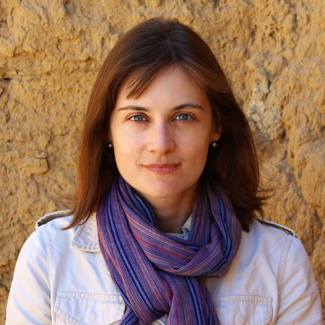Campus News
Elaine Sullivan awarded American Historical Association prize for innovation in digital history
UCSC associate professor of history Elaine Sullivan and alumnus Vincent DiGirolamo have each received a 2020 prize from the American Historical Association.


UCSC associate professor of history Elaine Sullivan has been awarded the 2020 Roy Rosenzweig Prize for Innovation in Digital History by The American Historical Association (AHA) for her project Constructing the Sacred: Visibility and Ritual Landscape at the Egyptian Necropolis of Saqqara.
Sponsored jointly by the AHA and the Roy Rosenzweig Center for History and New Media at George Mason University, the prize is awarded annually to honor and support work on an innovative and freely available new media project, and in particular “for work that reflects thoughtful, critical, and rigorous engagement with technology and the practice of history.”
Sullivan’s project uses 3D technologies to enhance Geographic Information Systems (GIS)–one of the prevalent formats for data organization in modern archaeology—in order to create interactive models that can be navigated through space and time to explore the ancient Egyptian burial site of Saqqara.
Her publication is among the first to push the boundaries to include interactive 3D models that can be navigated both spatially and temporally. It was published earlier this year by Stanford University Press as part of their new series of monographs and scholarly publications.
UCSC alumnus Vincent DiGirolamo also received the American Historical Association’s 2020 Palmegiano Prize in the History of Journalism for his book, Crying the News: A History of America’s Newsboys—which he started as a UCSC Master’s thesis in 1989. The book is an exploration of the newspaper industry and capitalism’s exploitation of child workers.
DiGirolamo is now an associate professor of history at Baruch College of the City University of New York, where he specializes in 19th and 20th-century U.S. history, with a focus on workers, children, immigrants, city life, and print culture.
DiGirolamo received an M.A. in Comparative Social History from UC Santa Cruz in 1989 and a Ph.D. in history from Princeton University in 1997. He has since taught writing and history at UCSC, Princeton, George Mason, Colgate, and Stony Brook universities.
The largest organization of professional historians in the world, the American Historical Association represents more than 12,000 members and serves historians representing every historical period and geographical area in a wide variety of professions. It provides leadership for the discipline by protecting academic freedom, developing professional standards, supporting scholarship and innovative teaching, and helping to sustain and enhance the work of historians.